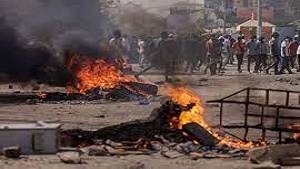Malawi, like many other Southern African countries, is increasingly facing challenges related to this crisis, with men, women, and children being trafficked both locally and internationally.
Peter Chisi, Director for Civil and Political Rights at the Malawi Human Rights Commission, highlighted the scale of the problem. “In the past three years, we were shocked by the discovery of over 32 Ethiopian nationals who perished while being trafficked. Their bodies were found buried in northern Malawi,” he said.
Chisi explained that vulnerable individuals, particularly those from rural areas, are often lured by false promises of jobs or education. “Many victims are enticed by offers of employment and better living conditions, only to find themselves trapped in abusive situations. For example, women trafficked to Oman were essentially working as slaves in homes,” he said.
Malawi also serves as a transit point for trafficking victims, particularly those from the Horn of Africa. “Many Ethiopian nationals pass through Malawi on their way to South Africa or other destinations. Agents operating near refugee camps facilitate these movements, promising resettlement in countries like the United States or Canada,” Chisi explained.
The situation is exacerbated by poverty and unemployment, which make Malawians susceptible to trafficking. “With unemployment rates high, people rush to take opportunities without verifying them. They are offered free air tickets and assistance with passports, but these are red flags that often indicate trafficking,” he added.
Efforts to rescue and repatriate victims have been met with challenges. Chisi noted that some trafficked individuals have been returned to Malawi, but under difficult conditions. “Employers in countries like Oman demanded compensation for transportation and agent fees, forcing the Malawian government to intervene with international partners to raise funds for repatriation,” he said.
While collaborative efforts involving the Malawi Human Rights Commission and various government ministries have yielded some positive results, gaps remain. “The government still struggles to document and track victims properly. Many were not documented before leaving, making it hard to determine how many remain trapped abroad,” Chisi said.
As the continent battles this growing crisis, Chisi emphasised the need for stronger preventative measures and greater public awareness. “Intervention is crucial, but we must do more to prevent such tragedies from happening in the first place,” he said.
--ChannelAfrica--












